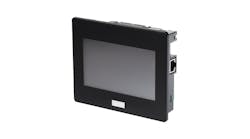Francois Claudel is marketing director at Telemecanique Sensors.
What are three key things that a machine builder, system integrator or manufacturer should know about your company?
Francois Claudel, marketing director, Telemecanique Sensors: Telemecanique Sensors was founded more than 90 years ago, and we specialize in sensors and sensor-related technology. As a global player and leader in the sensors business, we help our customers select the right technology to get the best performance and reliability from their machines. We design our solutions around three core values: simplicity, proximity and expertise.
We can offer a very large portfolio of industrial sensors, which includes electromechanical switches, pressure switches and transducers, proximity sensors, ultrasonics and photoelectric sensors, as well as RFID readers and safety solutions.
At Telemecanique Sensors, we do everything in house, from product design, validation and manufacturing to deliver high quality products to our customers.
What new technologies are driving your product development and why?
Francois Claudel, marketing director, Telemecanique Sensors: At Telemecanique Sensors, being innovative is our motto and technology is driving our solutions. Let me share with you few examples.
In the United States, on average 26 people are killed every year working on aerial platforms, and an estimated 10 fatalities per year could be avoided thanks to anti-collision systems.
Safety of the people and the assets is our top priority, and, besides our range of safety sensors, we are currently launching a new ultrasonic sensor that has a wide-angle detection area. This sensor is particularly interesting for any type of mobile equipment as it can reduce the risk of collision by detecting an obstacle present in the blind spot, for example, or power line.
It is a reliable alternative to more expensive technology and offers an opportunity to mobile equipment manufacturers to improve the safety of the operators and potentially avoid liability expenses.
Another example is, today, we all know that ecommerce has become a major growth driver for the logistics industry. Operating rates are required to increase, without impacting quality, to answer to this demand. For example, Amazon requires a 99.99% uptime for their business, which means no time for failure and maintenance. A few years ago, we designed an innovative product specifically designed for conveyors: the photoelectric roller sensor. This product can be simply mounted on the conveyor between rollers. In addition to drastically reducing the installation time, it can detect packages of any size, shape or material, and it is not subject to shock from passing packages or handling errors from operators, which reduces conveyor failure.
Also, asset tracking is becoming predominant for a lot of applications. One of it is the food and beverage industry as more consumers want to understand and track what they are eating. Data collection and trackability can be done with solution leveraging on RFID technology.
How does the Industrial Internet of Things figure in your business strategy?
Francois Claudel, marketing director, Telemecanique Sensors: The Internet of Things demonstrated the importance of data. Thanks to all those data that can be collected on a machine, a plant, a building or a vehicle, it is possible to run some analytics to optimize the processes to improve people or asset safety, improve energy efficiency, reduce downtime thanks to predictive maintenance or increase production rate. The field of possibilities is immense, and this is why collecting data has become essential.
This can only be done with reliable and communicating sensors, and this is why the Internet of Things is integrally part of our strategy.
This is exactly why we recently launched our cloud-connected sensor XIOT that gives the opportunities to collect data even from remote and isolated locations. This sensor, which doesn’t require external power supply, pushes directly the data to the cloud to notify the user in case of threshold or alarms. This for example can help a farmer to not lose his crop because of irrigation failure.
Besides that, it is also important to understand that many users, operators or technicians are not yet ready to switch to digital technology, and this is why we continue to offer traditional sensors such as our range of pressure switches and mechanical limit sensors that are by design robust, simple to install, easy to use and can switch power loads directly. There is still a need for simple, complete sensor solutions where the sensor does the control using electromechanical sensors and hardwired control logic.
As engineering and IT continue their convergence, which one is and/or will be leading the direction of future automation and technology at your organization?
Francois Claudel, marketing director, Telemecanique Sensors: One of the main consequences of the convergence between OT and IT is the need for more cyber-secured products. Historically, many devices only connected to a PLC, for example, or to a protected local network were not embedding any cybersecurity measures.
Also read: All the monitoring in one sensor
In today’s world, as it is not possible to define in advance how the connected products will be used and in which environment, it is essential that the manufacturer delivers products that can offer some protections against cyber attacks.
Also, today we are transitioning more from traditional sensors to communicating sensors, which are simplifying the installation, giving access to more data within the particular communication protocol IO-Link, and we should expect that more of those low-level communication buses that are today wired will become wireless.






